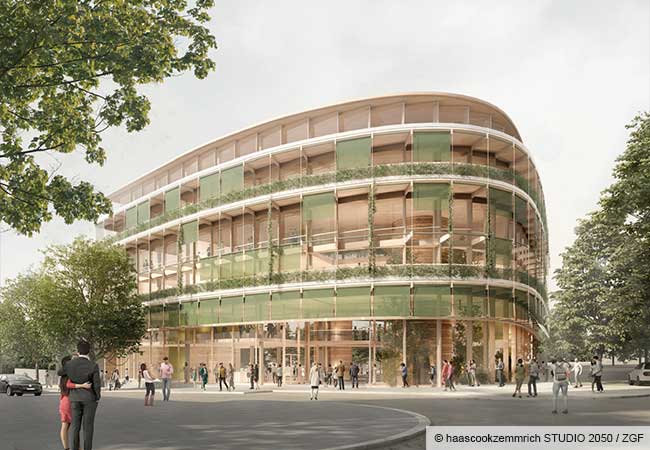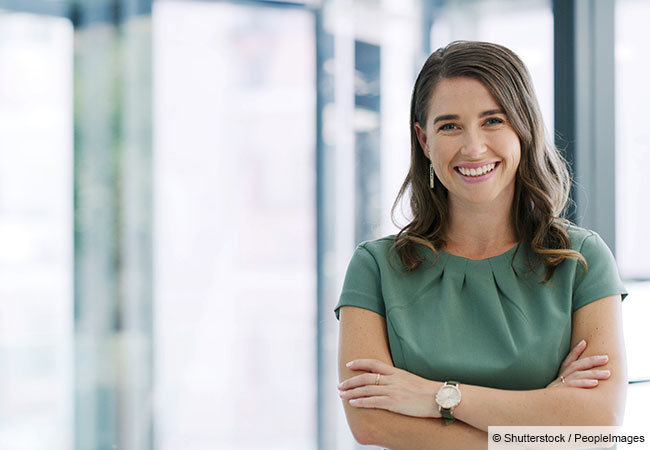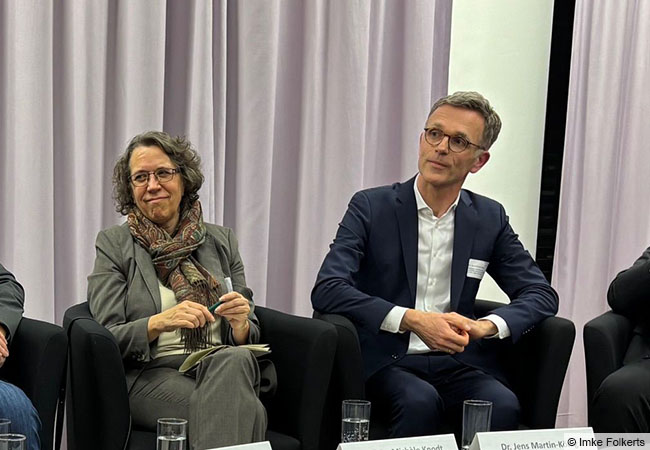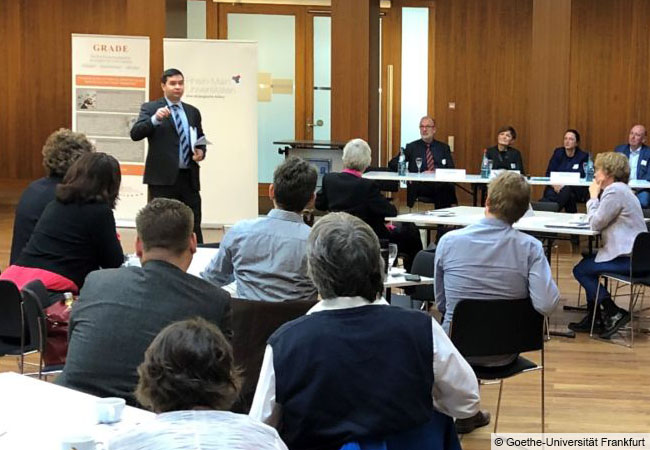New LOEWE Center at Goethe University Frankfurt: State of Hesse provides €14.7 million in funding to DYNAMIC Center, jointly operated by four Hessian universities.
Better understanding the causes and symptoms of mental illnesses means they can be treated more accurately, or, put differently, more individually. The new LOEWE[i] center DYNAMIC will use AI to research the networked interaction of disease factors, and further develop therapies. Part of the Hessian research funding program, the center has now been awarded a grant from the Hessian Ministry of Higher Education, Research, Science and the Arts.
Mental illnesses are among the most common and most serious diseases worldwide. The earlier and more accurate patients are treated, the greater the chance of a therapy’s success. Scientists from four universities in Hesse have now set up a joint initiative to develop more complex therapeutic approaches: The new LOEWE center DYNAMIC (Dynamic Network Approach of Mental Health to Stimulate Innovations for Change) will not only examine individual characteristics of mental illnesses such as anxiety, negative moods or individual activation processes in the brain. Using artificial intelligence (AI), their interconnectedness and the dynamic evolution of these networks will also be analyzed. This allows diseases to be better identified and treated more individually.
Having included the LOEWE Center DYNAMIC in its program to promote cutting-edge research, the state of Hesse has now approved funding to the tune of €14.7 million for the center, covering an initial period from 2024 to 2027. The center is supported by Goethe University Frankfurt, the University of Marburg, the University of Giessen and the Technical University of Darmstadt. The project is also supported by researchers from the Leibniz Institute for Research and Information in Education (Leibniz-Institut für Bildungsforschung und Bildungsinformation, DIPF) and the Ernst Strüngmann Institute for Neuroscience (ESI). Additional parties involved include the universities’ respective medical faculties and departments, as well as the psychotherapy outpatient clinics of their psychological institutes. DYNAMIC has a rotating leadership: In the first funding period, this job is assumed by the University of Marburg with its spokesperson Prof. Dr. Winfried Rief. During the second funding period, leadership will move to Goethe University with its spokesperson Prof. Dr. Andreas Reif, Clinic for Psychiatry, Psychosomatics and Psychotherapy at the University Hospital Frankfurt.
„The award of a new, fourth LOEWE center is a testimony to just how well we are positioned within the network of Hessian universities and other partner institutions when it comes to research,“ says Goethe University President Prof. Dr. Enrico Schleiff. „The new center is yet another place where we can conduct cutting-edge research and raise our university’s excellent profile.“ Schleiff congratulated all scientists participating in the program, „who are investing their expertise and innovative foresight in researching mental illnesses, which today affect one in four people. By combining mental illness therapy with cross-disciplinary AI, we will gain a deeper understanding of disease. Naturally, our new Center for Critical Computational Studies C3S will contribute its expertise to this promising research.“
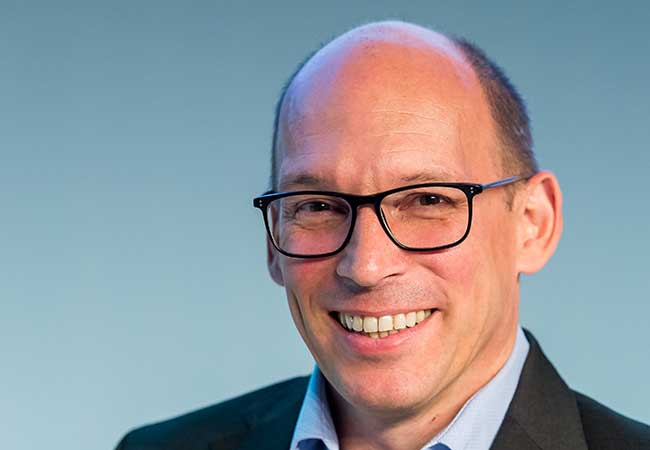
„We are very pleased about this important and highly perceptible signal from the state of Hesse to sustainably promote research on mental illnesses,“ says Prof. Dr. Andreas Reif, Goethe University’s project spokesperson. „Although we are talking here about major widespread diseases, they have not been researched as intensively as other disease groups. The fact that this will now change in Hesse has a great signal effect. This project will benefit many patients – both through the scientific findings, especially in personalized therapy, and also as a result of the intensive interdisciplinary collaboration that will be initiated in DYNAMIC.“
The main idea behind DYNAMIC is to conceptualize mental disorders as dynamic networks of psychopathological, psychological and biological processes. Such models can revolutionize our understanding of mental disorders and their treatment, because they enable a better understanding of the interdependencies of individual symptoms and syndromes, and also reveal the dynamics of their changes in mental disorders. AI will then be used to evaluate these dependencies, including, for example, to determine causalities from observed data. „The diagnosis and treatment of mental illnesses has improved considerably in recent decades. Fortunately, at the same time, public awareness of mental illnesses has also increased,“ says psychiatrist Prof. Dr. Andreas Reif. „Nevertheless, in many instances, we can only help patients relatively late or not sustainably enough. That is why we need profound new approaches, like the ones that already exist in personalized treatment in other disease areas. Dynamic network analysis is an innovative model that enables such personalized approaches for mental illnesses as well – which is why we are very pleased that the state of Hesse will support this novel approach in the coming years.“
Prof. Dr. Winfried Rief from Marburg University’s Faculty of Psychology adds: „Our main goal is an improved and personalized treatment planning for mental illness. The Corona crisis reinforced the importance of getting better preventive and therapeutic measures for these diseases. But we are also taking advantage of the momentum generated by the transformation of this field at the universities themselves, including through new courses of study in psychotherapy, recently introduced at the psychology institutes. This project aims to develop a sustainable and unique structure for interdisciplinary cooperation, research and treatment of mental illness.“
Initiated by the state of Hesse in 2008, LOEWE centers are designed to specifically address a topic of high relevance, and to simultaneously evoke related structural changes in the participating universities. The DYNAMIC center calls for close cooperation between the faculties of medicine, psychology, mathematics, and computer science, and, in the medical field, a better incorporation of cooperation structures between the departments of clinical psychology and psychotherapy as well as the clinics of psychiatry and psychotherapy. Plans call for the project to continue even once the funding period ends.
Since the launch of Hesse’s LOEWE state offensive for the development of scientific and economic excellence in 2008, a total of 15 LOEWE centers have been funded to date.
Known by its German acronym, LOEWE stands for Hesse’s state offensive for the development of scientific and economic excellence.


